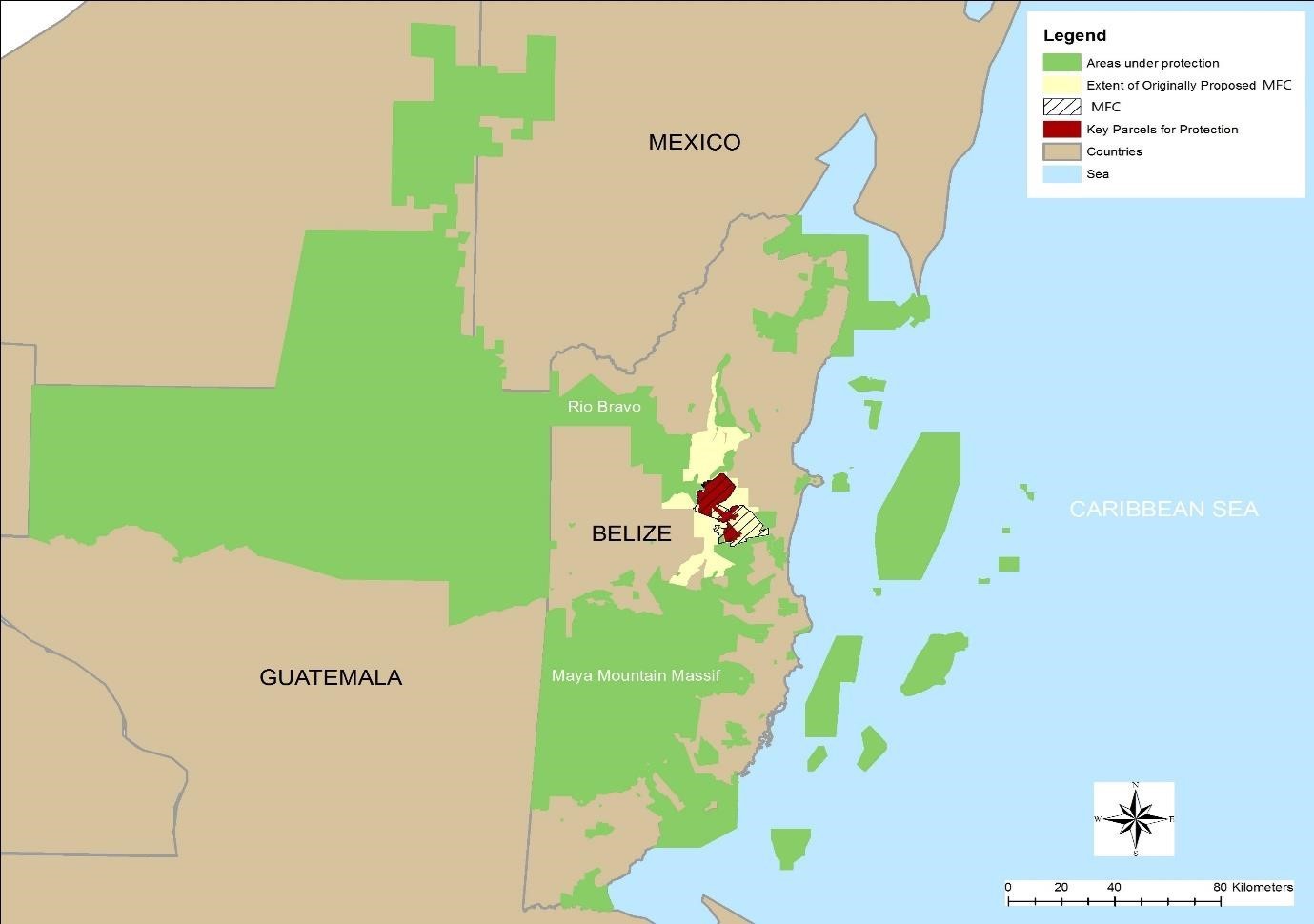BY BORIS ARÉVALO
The Maya Forest Corridor (MFC) in Belize faces a significant threat: wildfires. These fires, often triggered by human activities, can have devastating consequences for communities and biodiversity. During the 2023 fire season, which ran from February to June, a high level of fire activity was observed throughout the MFC. Our team diligently monitored this situation and identified a total of 29 individual fires that created four significant wildfire hotspots.
 Photo: Aerial view of the Maya Forest Corridor (CFM) in Belize. ©Boris Arevalo
Photo: Aerial view of the Maya Forest Corridor (CFM) in Belize. ©Boris Arevalo
To effectively manage and control this season's fires, WCS harnessed the power of drone technology. This innovative approach allowed us to gain valuable information on fire behavior to make informed decisions and develop more strategic fire management plans. In addition, we conducted a series of five comprehensive training courses on forest fire management, in collaboration with the Maya Forest Corridor Fire Working Group. These courses covered a variety of topics, including fire behavior, prescribed burns, fire ecology, and leadership. A total of sixty-three people participated in this training, with 13% women and 87% men. Through an increasingly inclusive approach, we seek to ensure that a diverse group of individuals is prepared to meet the challenges posed by wildfires, not only by improving their skills, but also by strengthening our collective capacity to effectively manage and mitigate fires in the Maya Forest Corridor.
 Map: Maya Forest Corridor by WCS Belize
Map: Maya Forest Corridor by WCS Belize
These efforts are essential components of our ongoing EU DeSIRA project aimed at preserving the invaluable natural resources and ecosystems of the Maya Forest Corridor while mitigating the destructive impact of wildfires. Working together, we have succeeded in protecting 14,000 hectares of natural ecosystems from the destruction caused by forest fires.
 Photo: One of the fires that impacted the Maya Forest Corridor in Belize. ©Boris Arevalo
Photo: One of the fires that impacted the Maya Forest Corridor in Belize. ©Boris Arevalo